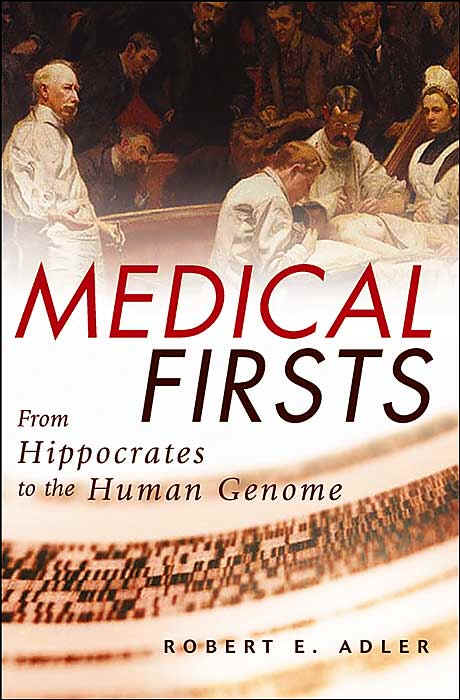|
 Brilliant
Concept, November 11, 2004 Brilliant
Concept, November 11, 2004
what "Science First" had occurred
next. Robert Adler highlights the sudden brilliance of a select
number of scientists, which actually seems to be a result of
serious study and contemplation.
You can literally see how ideas evolved through time and how
each scientist discovered inner genius despite immense
discouragement and conflict, not to mention religious
persecution and their own human foibles. You can see how humans
started to observe the exterior surroundings and then started to
delve into the areas of cell structure and the invisible atom.
This book presents scientists in all their human glory and the
honesty gives each scientist a true personality. Many struggled
to overcome physical and psychological adversities or were led
to their death by their own natural curiosity. It was not
uncommon for these individuals to be a living part of their own
experiments. However, not even plagues could hinder scientific
research and the work went on through time despite a seemingly
eternal and chaotic war of life itself that seemed determined to
thwart their efforts.
Thales, Anaximander, Pythagoras, Aristotle, Aristarchus,
Archimedes, Ibn al-Haitham, Copernicus, Galileo, Kepler, Van
Leeuwenhoek, Newton, Joseph Priestley, Humphry Davy, Darwin,
Gregor Mendel, Dmitri Mendeleev, Marie Curie, Guglielmo Marconi,
Max Planck, Ernest Rutherford, Albert Einstein, Alfred Wegener,
Edwin Hubble, Raymond Dart, Barbara McClintock, Claude Shannon,
James Watson, Francis Crick, Rosalind Franklin, Karl Jansky,
Lynn Margulis, Michel Mayor, Didier Queloz, Ian Wilmut and Keith
Campbell all make their appearances.
Robert Adler shows how Charles Babbage (1792-1871) and Ada Byron
Lovelace were at the cutting edge of technology and how Babbage
designed a machine that functioned like a modern computer. If
you become especially interested in any of the scientists or
chapters, there is a reference section for further reading. The
index is perfect for your own research or for locating a subject
of interest. I thought each chapter was perfect in content and
it definitely made me more interested in reading about
additional scientific discoveries.
Quotes are found throughout the chapters and I was especially
impressed by the letter Einstein wrote to Marie Curie who had to
overcome great personal trials to achieve her goals. I liked how
Robert Adler refutes the myth of Einstein being a slow learner
and he makes his points most eloquently. Pictures throughout the
text gives this book an additional dose of personality and the
biographical information is especially interesting.
Robert Adler presents a scientific journey through time that is
filled with insight and a depth of clarity that is stunning.
This is one of the most highly crafted books I've ever read. Not
only does Robert Adler delve into complex ideas about physics,
biology and astronomy, he makes the ideas accessible to readers
who may faintly remember these subjects from high school,
college or the news. I can't wait to read his book about medical
discoveries.
Science Firsts is truly a book about how scientific discovery
changed the world. It is a fascinating read and I can highly
recommend it to students of science, teachers and the casual
reader who has an interest in progress itself. After reading
this book, I think I might be ready to read about "the
theory of everything."
~The Rebecca Review
You may also enjoy reading the new Google/DK e.encyclopedia
science: the ultimate online learning resource.
Also by the same author:

Medical Firsts
|